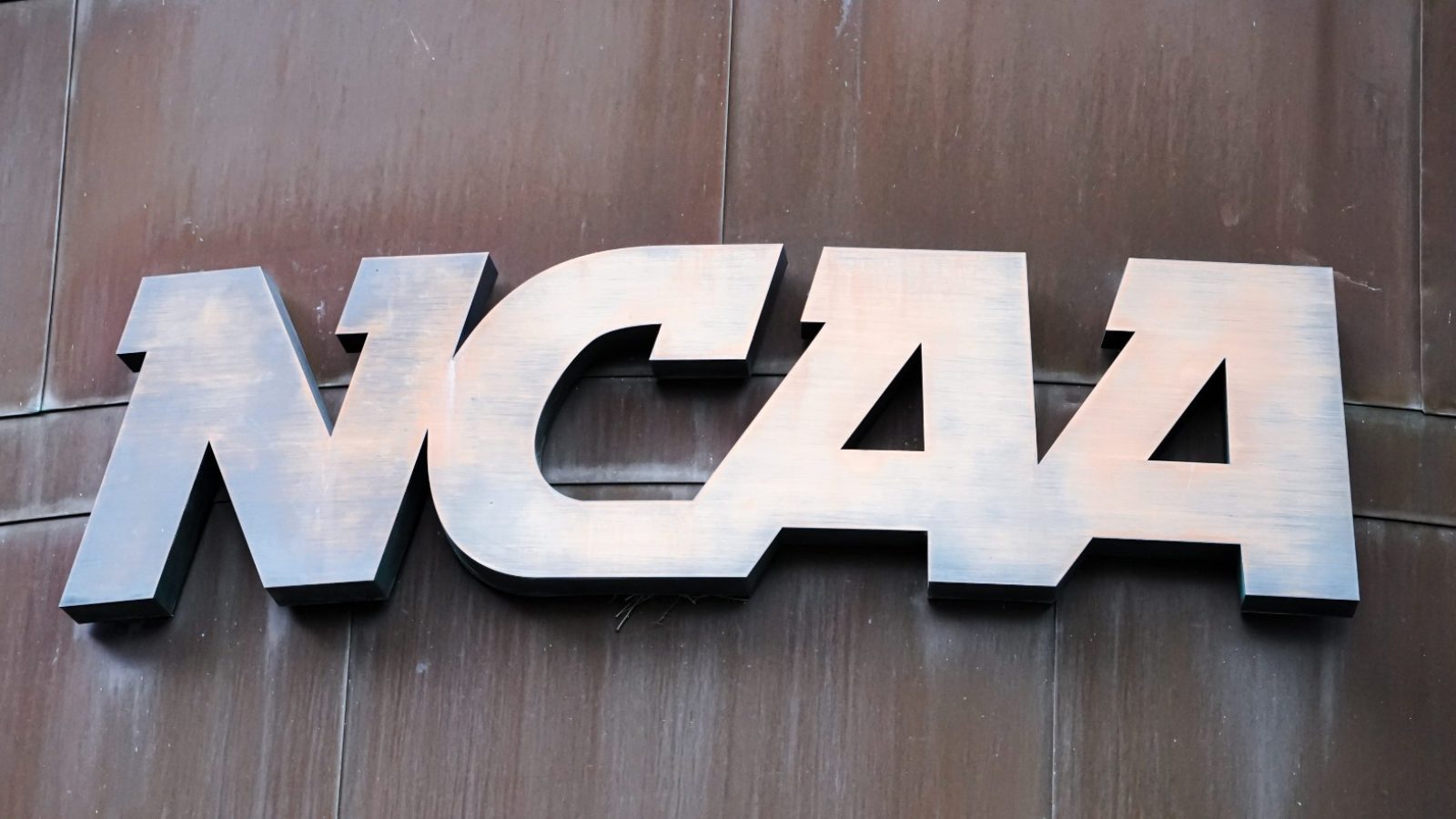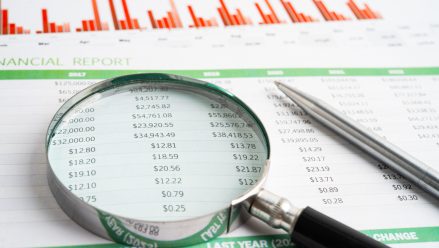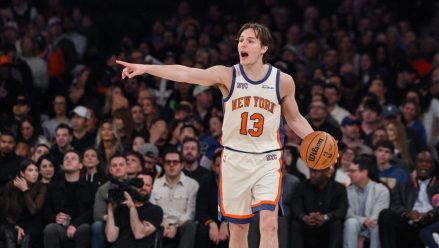The NCAA may be leapfrogging the 20th century altogether and landing firmly in the 21st by allowing athletes, coaches, and staff to bet on professional sports, per a Sports Illustrated exclusive.
As it stands, those people are not allowed to bet on any professional sport that is also played at the Division I level in college. Which means, betting is not allowed on the NFL. Or the NBA. Or the WNBA. Or the UFL. And so on.
SI reports the Division I Board of Directors voted 21-1 in a video conference in April to tell the D-I Council to “adopt legislation to deregulate the prohibition on wagering on professional sports.” It also “directed the NCAA staff to develop concepts for the appropriate committees to consider regarding a safe harbor, limited immunity or reduced penalties for student-athletes who engage in sports wagering but seek help for problem gambling.”
Athletes, coaches, and staff would remain prohibited from betting on college sports.
It’s possible the change will be fast-tracked, according to the article, with the new rules in place come late June.
This is all very 21st century stuff and a continuation of the NCAA’s review of its policies related to sports betting, which began in 2023.
“This is a cultural and philosophical recalibration for college athletics — both in terms of priorities and resources,” Matt Banker, college athletics consultant with MB Sports Consulting, told SI. “The world of sports wagering looks far different in 2025 than it did even 10 years ago, as it’s now legal in almost 80% of the United States. From a resource standpoint, if the NCAA national office’s only function was to monitor all three NCAA divisions’ hundreds of thousands of athletes, coaches, and staff for all iterations of sports wagering — including pro sports wagering — that could be the full-time job for everyone in the building.”
Issues at the college level
If the change is approved, it would allow the NCAA to concentrate its wagering investigations on issues that directly involve college athletes and teams.
There have been a few reported instances of no-goodniks — and pretty-goodniks doing harmless enough stuff — that have captured the attention of media.
Here’s a quick and dirty rundown.
A sprawling gambling network uncovered during the NBA investigation of player Jontay Porter has infiltrated multiple Division I basketball programs. The ongoing probe that resulted in Porter’s lifetime ban has revealed suspicious betting patterns at North Carolina A&T, Mississippi Valley State, Eastern Michigan, Temple, and the University of New Orleans.
Investigators identified numerous games with irregular betting activity — particularly heavy first-half wagers against specific teams, which are hallmarks of potential point shaving. Multiple players have been suspended as a result, while former Temple player Hysier Miller was dismissed following his transfer to Virginia Tech for “prior circumstances” later confirmed as gambling-related.
The problems extend beyond basketball. Texas self-reported five NCAA violations after staff and athletes, including two football players, placed nearly $15,000 in bets between July and November last year.
In 2023, Alabama baseball coach Brad Bohannon orchestrated a particularly insane scheme, directing an accomplice to place a $100,000 bet against his own team while withholding information about his unavailable starting pitcher.
That same period saw about two dozen Iowa and Iowa State athletes caught illegally betting on contests, including games in which they participated.
“At a macro level, the biggest risk to college sports is point shaving and prop bets and the integrity of its competitions being called into question,” Banker told SI. “It’s not whether a college athlete or coach bets on the Super Bowl or WNBA Finals. Is it risky to gamble on an individual level? Of course. Is pro sports gambling by a college athlete or coach the biggest threat to college athletics? It’s not.”






